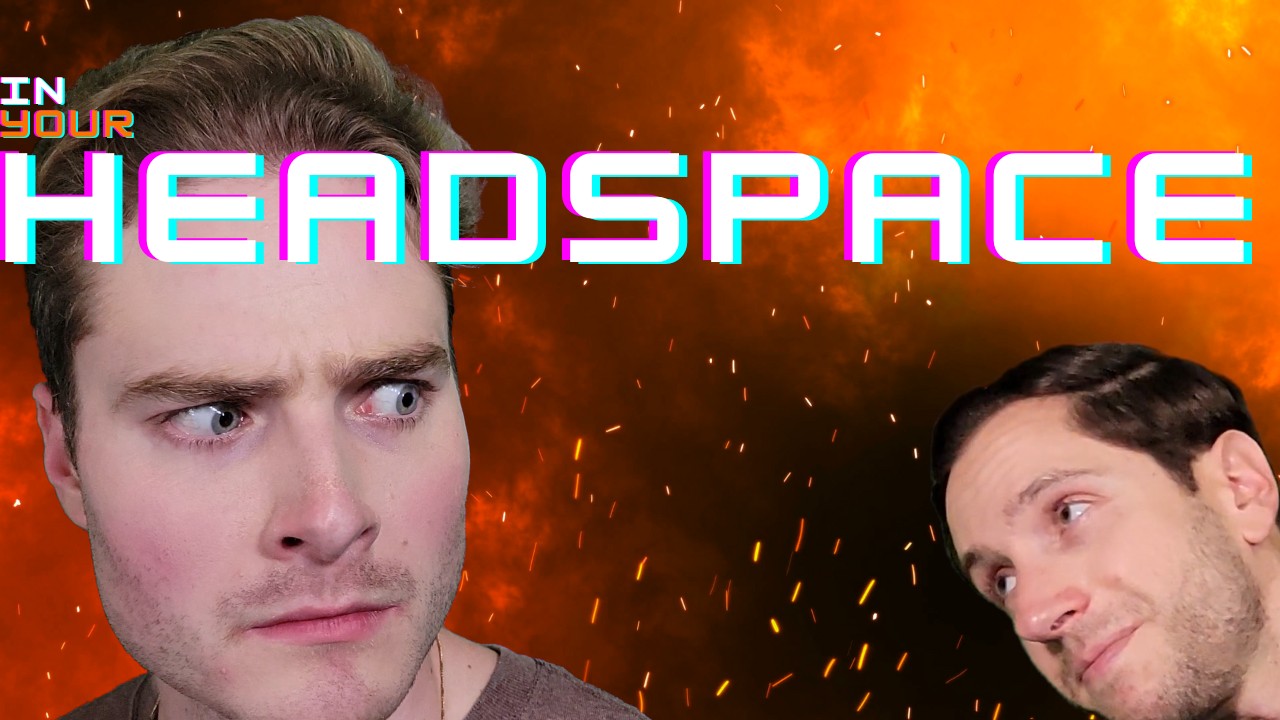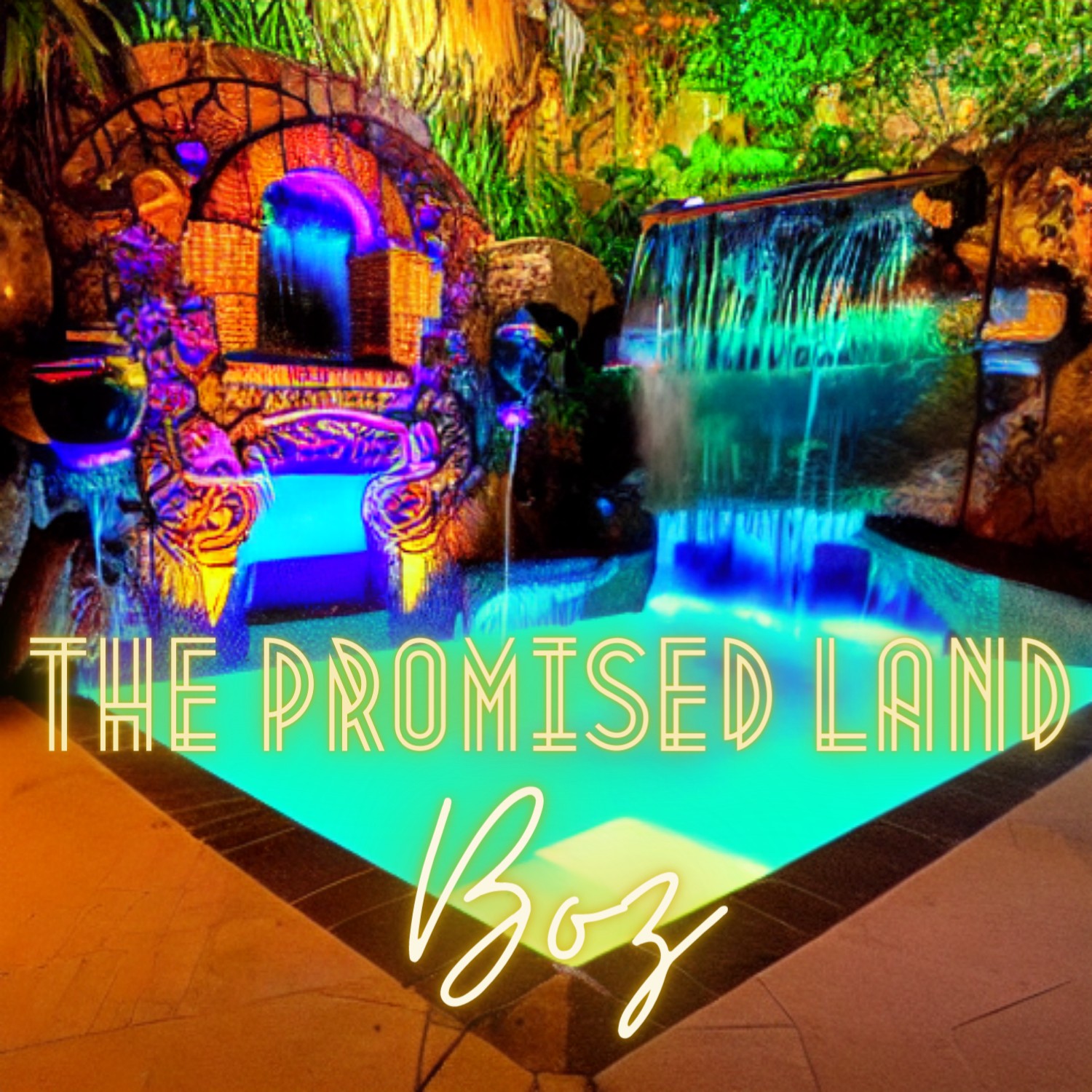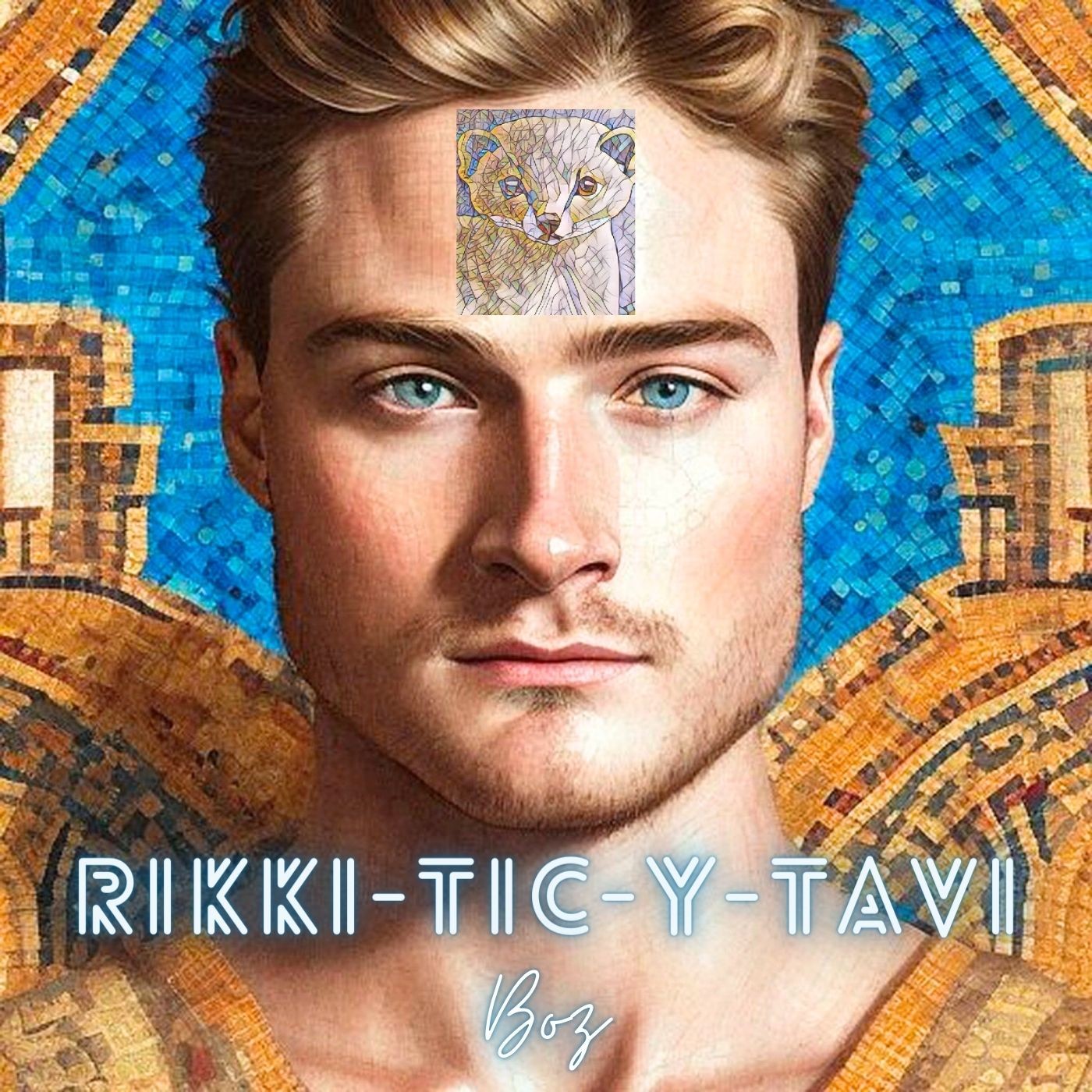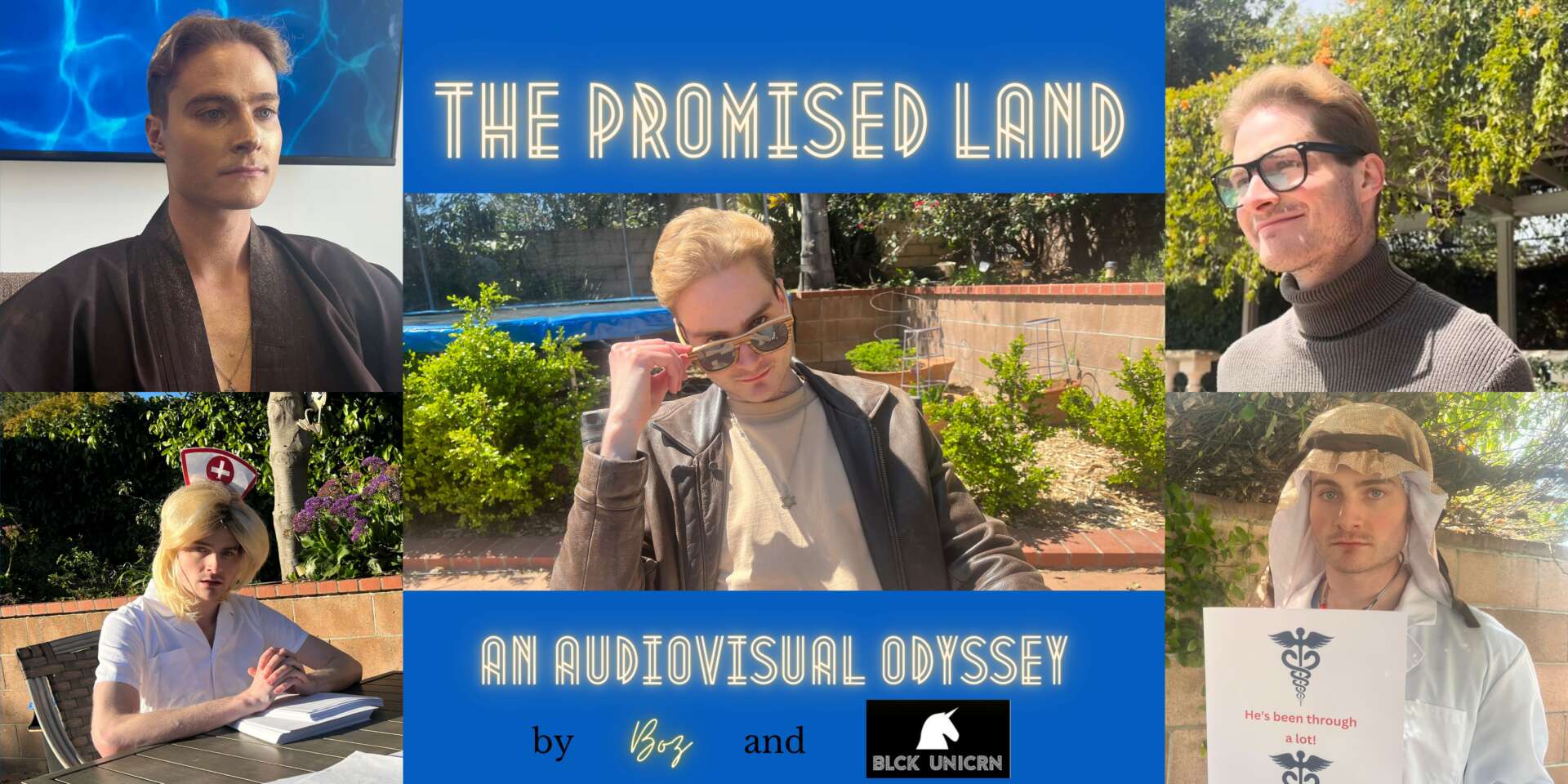We were lucky to catch up with Alexander Bozicevich recently and have shared our conversation below.
Alexander, appreciate you joining us today. Was there an experience or lesson you learned at a previous job that’s benefited your career afterwards?
My worst experience taught me the most. They say failure is the greatest teacher, after all. In this case, I was the manager of a CBD store for a year, and it was quite the adventure.
I was in my mid-20s, and the going was tough. I had gone on countless auditions but booked very little paid work. My survival job at the time was at an ice cream shop, and even though I often worked six or seven days a week, I was just scraping by. More than that, I was embarrassed to be twenty-five and still working at an ice cream shop. By any metric of the quarterlife crisis, I was falling short.
But then came a lifeline, a chance to level up: a friend of mine was opening a chain of CBD stores, and he wanted me to manage the one in LA. Not only would I receive a salary (the term itself sounded so adult to me at the time, having only been an hourly employee thus far), but I would also receive equity (an even more adult word that I understood mainly in the context of reading about tech startups).
Long story short, the whole thing turned out to be a hot mess, think a more bootstrapped version of the recent WeWork debacle. I ignored quite a few red flags and found myself entangled in a sketchy situation. The friend who seemed to be offering me a lifeline used the equity as leverage to convince me into doing all sorts of unpaid work during the store’s setup. After the store’s opening, I worked seven days a week making only slightly more than I had at the ice cream shop (which was technically illegal since I was not being paid overtime). The other employees and I were constantly being paid late, which hit even harder since I had hired friends of mine in the hopes of saving them from their unhappy survival jobs. The boundaries grew blurrier and blurrier as my increasingly-less-of-a-friend ran out of investment money. Eventually the house of cards came tumbling down. All but one of the stores closed within a year of opening, including the one in LA.
There were many lessons I learned throughout this ordeal by watching my now-former-friend: don’t fake it till you make it (also known as lying), don’t expand too quickly, don’t promise things you can’t deliver, don’t expect the end to justify the means, etc. I also learned some lessons from watching myself: don’t ignore red flags, don’t associate with truth-benders, don’t put your name on things, etc. But the most important lesson related to both of us as creatives. This friend’s original dream was not to be a CBD store mogul, it was to be a producer. The CBD store endeavor was meant to fund his production company. But after all was said and done and cosigned for, the original dream was buried beneath an avalanche of debt and sullied reputation.
It’s so easy for the main thing to get lost among the side things. My former friend and his failed CBD empire is a drastic example, but I have seen many people take on management positions at their survival jobs and lose track of why they came out to LA in the first place. I almost got lost in that myself. It’s also easy to get stuck in creative-adjacent work, especially as an assistant. Artists take on administrative roles hoping for mentorship and connection only to find themselves stretched thin and clinging to a corporate ladder they never really wanted to climb.
Of course, dreams can change. If someone discovers that another kind of work suits them more, that’s fine. In fact, considering how difficult it is to have a stable career in the arts, it might even be preferable. But for myself, I have learned to set a clear boundary by avoiding any kind of job or endeavor that leaves me too constrained to create and perform. Fail or succeed, I want it to be at the kind of work I’m actually excited about.


As always, we appreciate you sharing your insights and we’ve got a few more questions for you, but before we get to all of that can you take a minute to introduce yourself and give our readers some of your back background and context?
I moved to Los Angeles the fall after my graduation from the University of Virginia. I had spent the previous four years trying to convince myself to pursue a respectable political career when I just wanted to write, act, and make music. The first few years I prioritized auditioning and got cast in a smorgasbord of shorts, commercials, web series, and music videos. I also experimented with modeling and found that I had the right look for high fashion. At the same time, I worked on a novel and two pilot scripts.
As time went on, my hunger for creative control grew. There were too many stories and songs bouncing around in my brain. I started filming original shorts and sketches with a group of collaborators. I also started making music as part of a duo with my good friend Rob Turner (check out his solo project Five Start Friend) and we filmed several music videos as well. Around the same time, I completed my first feature length screenplay, which was a quarterfinalist in the BlueCat and Slamdance competitions. I also cranked out a couple more pilot scripts, one of which is currently making the rounds on the contest circuit.
The past year my creative triumvirate finally came together into one project: The Promised Land. The Promised Land is an audiovisual album (although the theater kid in me wants to call it a musical) that explores my experience recovering from long Covid. The story follows my character after I fall into a coma and wake up in purgatory, which happens to look like a magical swimming pool with healing powers. To immerse myself in this healing pool, I must get the procedure approved by a metaphysical insurance agency, which requires interacting with all sorts of zany characters and confronting the contradictions keeping my soul sick.
The project is in collaboration with a company called BLCK UNICRN that fuses music and technology to creative immersive experiences. The opportunity allowed me to indulge all my multihyphenate fantasies: I wrote the script, I made the music, and I played almost all the parts. Even more exciting, I am now working with BLCK UNICRN to devise a live version of the experience. Stay tuned, as they say.
Several other things to say tuned for: I am planning to release my second album by the end of this year. I am also planning to publish a novel that I have been working on for some time. In the meantime, you can check out my recent single Rikki-Tic-Y-Tavi, a dance song about Tourette’s, and In Your Headspace, a sketch about a virtual meditation session gone wrong that was directed and edited by my good friend Anthony Papastrat.
This fall marks eight years in Los Angeles. If I’m proud of anything, it’s how I’ve used creative work across multiple disciplines to address challenges in my personal life and find meaning in them. I don’t know what guarantees success, but I think I know what guarantees fulfillment, and that’s honesty.

How can we best help foster a strong, supportive environment for artists and creatives?
The goal should be to foster a creative middle class. In the short term, this requires a strengthening of unions, which is why I find the Hollywood strike encouraging. The advent of new technologies always requires a reshuffling of the labor market. With the release of generative AI, it is now or never to establish standards that protect and prioritize human flourishing.
My creative friends and I have been joking about putting “Certified Organic” on work that we did not use AI to make, but I think there’s something to that bit. As AI tools progress at exponential rates, some version of “Certified Human” might be helpful to distinguish what is fresh and what is regurgitated by an algorithm. I also think that in the same way people should be paid for their data, artists whose work has been used to train AI should receive some kind of royalty.
In the longer term, I believe that some version of universal basic income will be necessary, not just for artists but for workers of all industries. Universal basic income (the idea that every citizen would be paid a fixed amount each month to assist with living expenses) is a peaceful way to redistribute wealth within a capitalist system. Before the pandemic, the idea sounded utopian and unrealistic, perhaps in the same way that remote work did. Now there are pilot programs all over the world and the data seems to indicate that people are healthier and more productive when they have room to breathe. This finding runs contrary to the WALL-E scenario most people imagine in a future where people would not have to work for survival.
We are in the middle of an exciting but also incredibly difficult transition. As AI advances, it will become even more urgent for artists and creatives to explore that age-old question of what it means to be human. For artists and creatives to do so, we should move away from the Feast or Famine model of compensation that has constrained our industry for so long.
For you, what’s the most rewarding aspect of being a creative?
I’ve always had trouble reconciling with reality. I never got over the fact that Hogwarts neglected to send me my letter or that Narnia never appeared in my wardrobe. The usual reprimand of “welcome to the real world” never dampened this little voice in the back of my brain that expected life to be something more. The mundane aspects of day-to-day existence continue to bug me. Why are most jobs so boring? Why am I constantly filling out paperwork? Where is the magic and adventure that the stories promised me?
Creative pursuits are the best way I know to recapture that feeling of possibility as an adult. It’s the reason that most of my written work has some kind of fantasy component. I spent twelve years writing and rewriting a novel because I needed another world to go into and make sense of things. It’s the same reason I keep writing the sequel even though the future of the first book is still uncertain.
But creative work isn’t just about escapism for me. The most rewarding aspect of art is to find what aspects of personal mythmaking translate well enough to have value for others. When I hear from someone that they related to something I’ve made, this is the real alchemy. It’s a bit of mental magic that proves our shared status quo is more malleable than we are conditioned to believe.
As I get older, I feel more kinship with my generation. For many years, I was privately insane with competitiveness. I spent an embarrassing amount of time worrying that someone I went to school with would get famous before me. Now I spend an embarrassing amount of time feeling sad that the daily grind of adulthood has claimed so many of us. More than that, I feel sad that we came of age in a period of extended crisis. To quote a previous Uber driver: “Millenials haven’t had a break since 9/11.”
But I keep creating because I haven’t lost hope that I can bring some kind of magic back from my flow state journeys into the unconscious. I keep creating because I haven’t lost hope that my burnt-out generation might get a second wind. I keep creating because I haven’t lost hope that we can still nudge our society toward the utopian end of the spectrum. All in all, I keep creating because I haven’t lost hope that the best times could still be ahead of us.
It’s not the worst motivation.

Contact Info:
- Website: thebestofboz.com
- Instagram: https://www.instagram.com/bozalexander/
- Youtube: https://www.youtube.com/@boz5863
- Other: https://artists.landr.com/055120608735 https://www.blckunicrn.com/
Image Credits
Todd Tyler Anthony Papastrat


